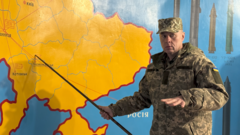Yet, calls for reconsideration of nuclear capabilities have emerged within the political and military landscape, raising significant questions about future defensive strategies.
As Ukraine continues to navigate a complex geopolitical landscape, the legacy of its nuclear disarmament looms large, prompting questions about trust, strategy, and the realities of modern warfare.
Amid fading hopes for comprehensive security guarantees and a divided NATO stand, discussions within Ukraine hint at reconsidering the possibility of re-establishing a nuclear deterrent. This conversation is set against the backdrop of its tumultuous history, reflecting a nation determined to redefine its approach to self-defense in an increasingly unpredictable world.
As the conflict persists, observers globally will likely track how Ukraine’s historical decisions influence its current stance, between the ideals of disarmament and the necessity of strategic deterrence.
As Ukraine continues to navigate a complex geopolitical landscape, the legacy of its nuclear disarmament looms large, prompting questions about trust, strategy, and the realities of modern warfare.
Amid fading hopes for comprehensive security guarantees and a divided NATO stand, discussions within Ukraine hint at reconsidering the possibility of re-establishing a nuclear deterrent. This conversation is set against the backdrop of its tumultuous history, reflecting a nation determined to redefine its approach to self-defense in an increasingly unpredictable world.
As the conflict persists, observers globally will likely track how Ukraine’s historical decisions influence its current stance, between the ideals of disarmament and the necessity of strategic deterrence.



















